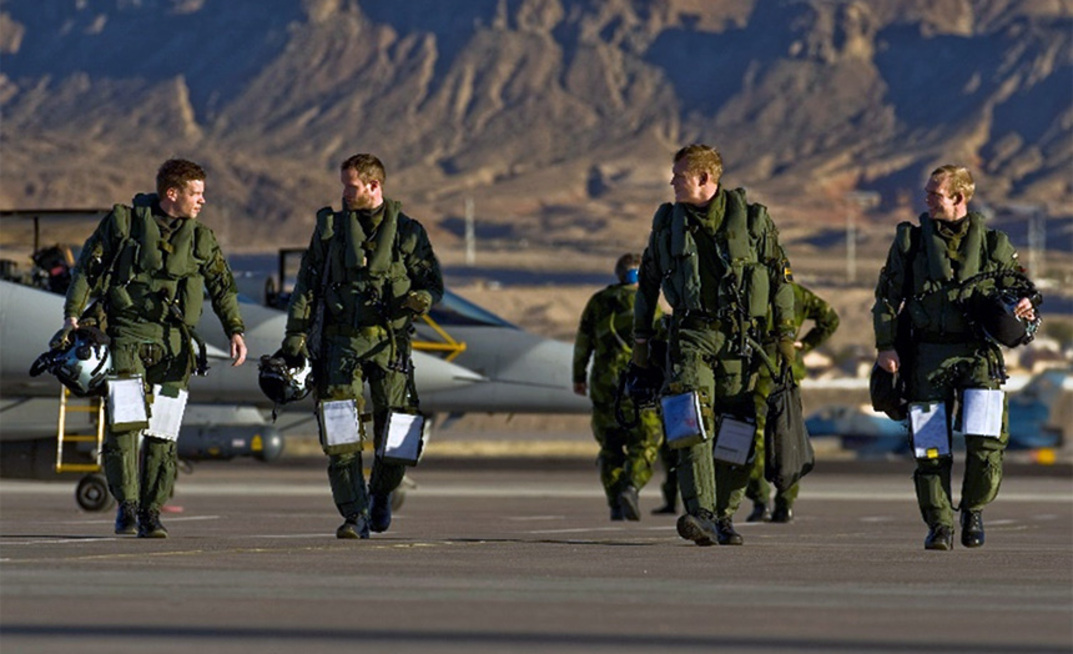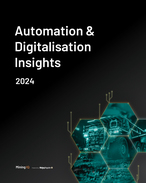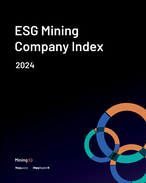By Christian "Boo" Boucousis of Afterburner Australia
If there's one thing every fighter pilot is acutely aware of it's the limitations of human beings in the complex environment they operate. At no point is a fighter pilot ever fully in control of "the full picture". They do however understand the importance of creating Situational Awareness or finding the right information at the right time to make a good decision and act on it.
In many industries including the resource sector the human is gradually (albeit persistently) being designed out of day-to-day operations through new technology. There is sound logic to this approach because statistically a human being is typically the root cause of any element of a business performing poorly. The reality is, no matter what level of automation we achieve in a business, how smart our digital platforms become, whether it be in exploration, design, development, operations or shutdown, there is ultimately a human or group of humans involved in the process, which begs the question: Are organisations adequately investing in the development of their people and their performance, or is our inherent humanness and the way we look at managing people obscuring our vision? Let's take a look.
The individual v the collective
Humans are fundamentally driven by a need to be part of a social network. We are taught, and observe as we grow into adults, certain behaviours that allow us to assimilate into certain social groups. We don't want to be too obvious, dress too differently or talk about topics that may offend or irritate others. For the most part, we want to be good people.
This desire for social acceptance is the precise reason so many of us are glued to our smart phones. This constant desire for social inclusion (every time our mobile phone beeps or flashes) creates an environment where high performance is virtually impossible. Why? Because our focus is on our smart phone or Facebook account, and not on the tasks we need to complete to achieve something. It's like trying to climb a mountain with someone throwing pebbles at you the entire time.
You may think of high performance as an individual pursuit - a great athlete, celebrity or successful entrepreneur. Many HR departments approach their workforce in this manner, spending small fortunes on "talent" or high performing individuals. Very rarely do we actively recruit a high performing group or team.
For your average fighter squadron, the focus is entirely on the team. The individual is largely irrelevant to the extent that recruitment, remuneration and training is the same for each member of the squadron. The outcome of this approach is two-fold. Each member of the team can fill the role of another seamlessly and is acutely aware of their limitations as humans.
Understanding our limitations

The operating environment of a fighter pilot is complex, hostile, and not conducive to human functioning. The body experience extreme stresses of over nine times the force of gravity. The human limitation? The brain blacks out at around 4G. So with a great deal of effort the fighter pilot is trying to remain conscious. The workload that comes with trying to monitor the health of the aircraft, keep track of the battlespace and deploying explosive devices through three dimensions is overwhelming (particularly because a miss greater than 1m may cause irreparable damage to equipment, facilities or human life).
Ultimately in these environments the human will fail because it is not designed to function there. Unless of course we accept our inherent human limitations.
Learning from our mistakes
Through understanding our limitations we're able to identify feelings of stress, task overload and distraction, and take appropriate action to create the time and space we need to re-focus. When we accept our limitations, and the inevitability of mistakes, we're far more likely to open ourselves up to innovation, learning from our mistakes and applying those lessons to the future. Only then can we create a way of thinking and framework for action to unlock our high performance potential. This is the "Human Factor".
By understanding the Human Factor we can make mistakes without fear of repercussions. We accept and move forward. We can find the simple in the complex by defining our objectives and achieving them through simple and repeatable tasks. We can then review our performance openly and honestly, assess the results, identify the reasons for those results and make adjustments to our actions to ensure we're improving each and every day. By learning from small mistakes means we can make small adjustments to our behaviour regularly, rather than waiting until a big and expensive mistake is made which sees everyone running to the hills!
Christian "Boo" Boucousis is a leadership and high performance expert, and co-author of "On Time, On Target: How Teams and Companies Can Cut Through Complexity and Get Things Done….The Fighter Pilot Way".
He is a former Air Force Fighter Pilot and currently the CEO of Afterburner Australia and Publisher of Australian Aviation Magazine.
For more information on Boo:https://www.linkedin.com/in/christian-boo-boucousis/
For more information on Afterburner: https://www.afterburner.com.au/
ABOUT THIS COMPANY
Afterburner Australia
Afterburner Australia is a global leader of team development, leadership and operational excellence programs. Our facilitators are all current or former serving fighter pilots who are experts on high performance and human factors.
Contact us today to kick start your operational excellence mission.


























